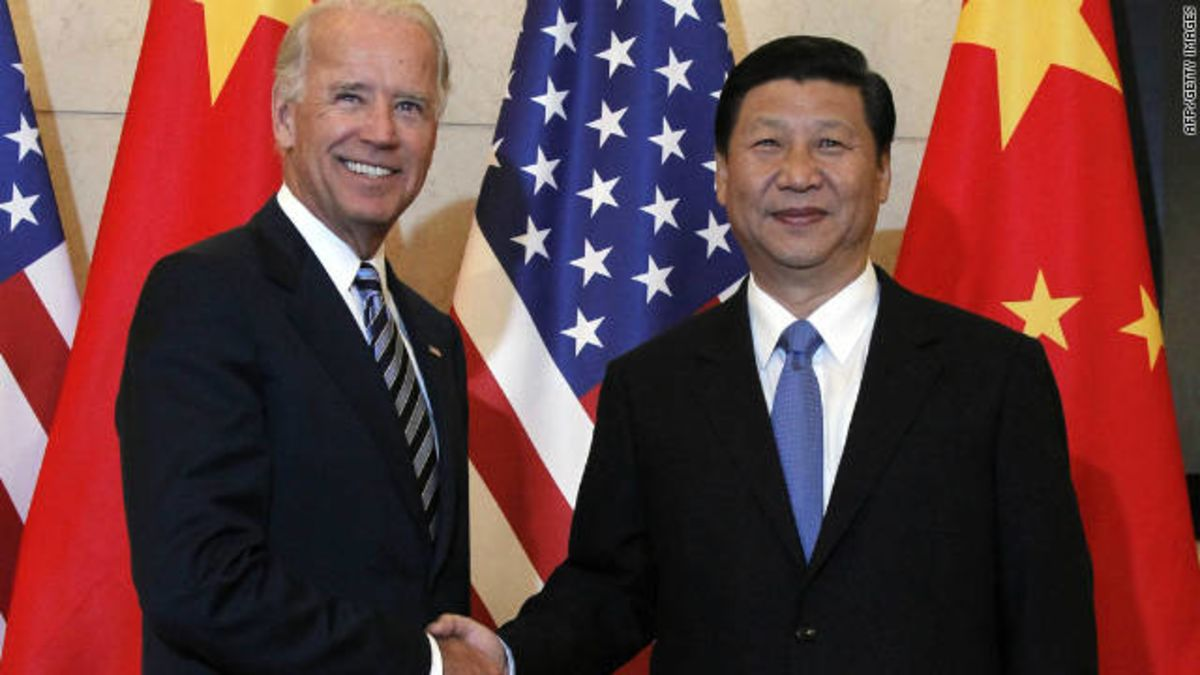For decades, technological leaders have touted artificial intelligence (AI) as a social and economic boon capable of solving the world’s worst calamities. These benefits, however, come with their fair share of disastrous possibilities. Namely, mass unemployment, a widening wealth gap between developed and developing countries, and the potential for a cold war. The unrestricted advancement of artificial intelligence has the potential to lead to disagreement between the two leading AI nations, America and China, and an AI-fueled conflict between the world’s superpowers could devastate entire nations. The question remains: how likely is this conflict?
Anne-Marie Slaughter, chief executive officer of New America, a think tank dedicated to renewing America in the Digital Age asserts,
Experts focused on the rise of artificial intelligence as the next world-shifting technology see both China and the U.S. leaving other countries far behind . Given the tremendous amount of both resources and above all data necessary for machines to learn accurately, the U.S. and China will be the only nations that can really compete.
Amy Webb, founder and CEO of the Future Today Institute and honored by Forbes as one of the five women changing the world, furthers: “China’s AI push is part of a coordinated attempt to create a new world order led by President Xi. U.S. AI, on the other hand, is primarily driven by market forces and consumerism, a dichotomy that is a serious blind spot for us all.” The US and China both appear to have ambitious AI goals and will stop at nothing to achieve them. This could foster a competitive environment among the nations and provide an outlet to express already rising tensions.
According to POLITICO journalist Ryan Heath,alongside those competitive and security tensions the AI struggle is further complicated by the fact that the world lacks a common rulebook for the ethical use of AI . Multilateralism and international cooperation are under strain, making a global agreement on AI ethics difficult. Without an international playbook on the usage of AI, the development of AI in these two leading nations remains unrestricted. An ideal playbook would provide rules and regulations regarding AIs usage as weapons and need to be signed by most leading nations in the world.
Competition in AI between powerful nations can lead to the devastating escalation of AI based weapons. Bernard Marr of Forbes explains that it is plausible to expect that the nuclear arms race will be replaced with a global autonomous weapons race. Reuters furthers that countries are rapidly developing killer robots - machines with artificial intelligence (AI) that independently kill - but are moving at a snails pace on agreeing global rules over their use in future wars. The prospect of life threatening technology without human supervision coupled with the tense circumstances of a cold war could take countless lives. Heath of Politico reports Eric Schmidt, chairman of the National Security Commission on Artificial Intelligence, [says people can] not relax on AI issues because even consumer AI innovations have the potential to be used for cyber war in ways that arent always evident or anticipated. Everyday people are growingly able to develop these weapons on their own. Combine these growing killing capabilities with unhealthy relations and the lack of regulation, to harbour the perfect conditions for devastation. Reuters concludes, Within a few years, [autonomous weapons] could be deployed by state militaries to the battlefield… scanning and selectively killing their targets within seconds. This is no longer a futuristic fantasy; it is a likely and legitimate reality facilitated by AI.
These unregulated circumstances, the ambition of both nations and their ongoing unfriendly relations create the perfect conditions for a disastrous cold war. Based on precedent, we know that an unregulated cold war can have a range of devastating impacts: First, tensions initiated by a desire for supremacy over the AI industry will spill over to other parts of the economy to create uncertainty for millions. Forbes concludes that already it is the looming AI cold war that is driving behaviors [between China and the US]. As one example, these behaviors include an escalating trade war, which, by the end of 2020, cost the US 300,000 jobs, and $316 billion. Similarly, American farmers have lost the vast majority of what was once a $24 billion market in China. What comes next could be worse. Second, Rider of Texas University writes that arms races often spiral into violence as neither side trusts the other enough to stop developing militarily, increasing the probability of conflict by 331%. Wallace furthers that 23/26 arms races have led to war. Thus, it is clear that AI increases the inevitability of war between China and the US.
Experts who disagree with the possibility of a cold war, including Webster of MIT, argue that AI has been developed for years with little violent conflict. Moreover, mutually assured destruction prevents any such conflict from escalating too gravely. In general, opponents deem the possibility absurd and unlikely in a globalized and extremely internationally dependent world. If anything, they foresee slight competition between nations without any meaningful, long-lasting impacts. Despite these doubts, AI will, at the very least, increase tensions between major players on the world stage. Nations should be aware and prepared for AI induced disagreement.
Works Cited
Bhalla, Nita. Nations Dawdle on Agreeing Rules to Control ‘Killer Robots’ in Future Wars. Reuters, Thomson Reuters, 17 Jan. 2020,
Doffman, Zak. As The AI Cold War Looms, Has Time Finally Been Called On China’s Spy Industry? Forbes, Forbes Magazine, 6 Aug. 2019, www.forbes.com/sites/zakdoffman/2018/12/22/as-the-ai-cold-war-looms-has-time-finally-been-called-on-chinas-spy-industry/?sh=5ddddc1b30a6,
Fryer-Biggs, Zachary. Coming Soon to a Battlefield: Robots That Can Kill. The Atlantic, 3 Sept. 2019, www.theatlantic.com/technology/archive/2019/09/killer-robots-and-new-era-machine-driven-warfare/597130/.
Heath, Ryan. Artificial Intelligence Cold War on the Horizon. POLITICO, POLITICO, 22 Oct. 2020,
Marr, Bernard. Is Artificial Intelligence Dangerous? 6 AI Risks Everyone Should Know About. Forbes, Forbes Magazine, 14 Mar. 2019,
Slaughter, Anne-Marie. Inside the U.S. and China’s Incoming Artificial Intelligence Cold War. Pacific Standard, 15 Mar. 2019,
Rider, Toby J, et al. Just Part of the Game? Arms Races, Rivalry, and War. Journal of Peace Research, vol. 48, no. 1, 2011, pp. 85100. JSTOR, www.jstor.org/stable/29777471. Accessed 1 Dec. 2020.
 Maya Dias, Alumni at AIT
Maya Dias, Alumni at AIT 
 Why You Should Watch the Marvel Movies
Why You Should Watch the Marvel Movies